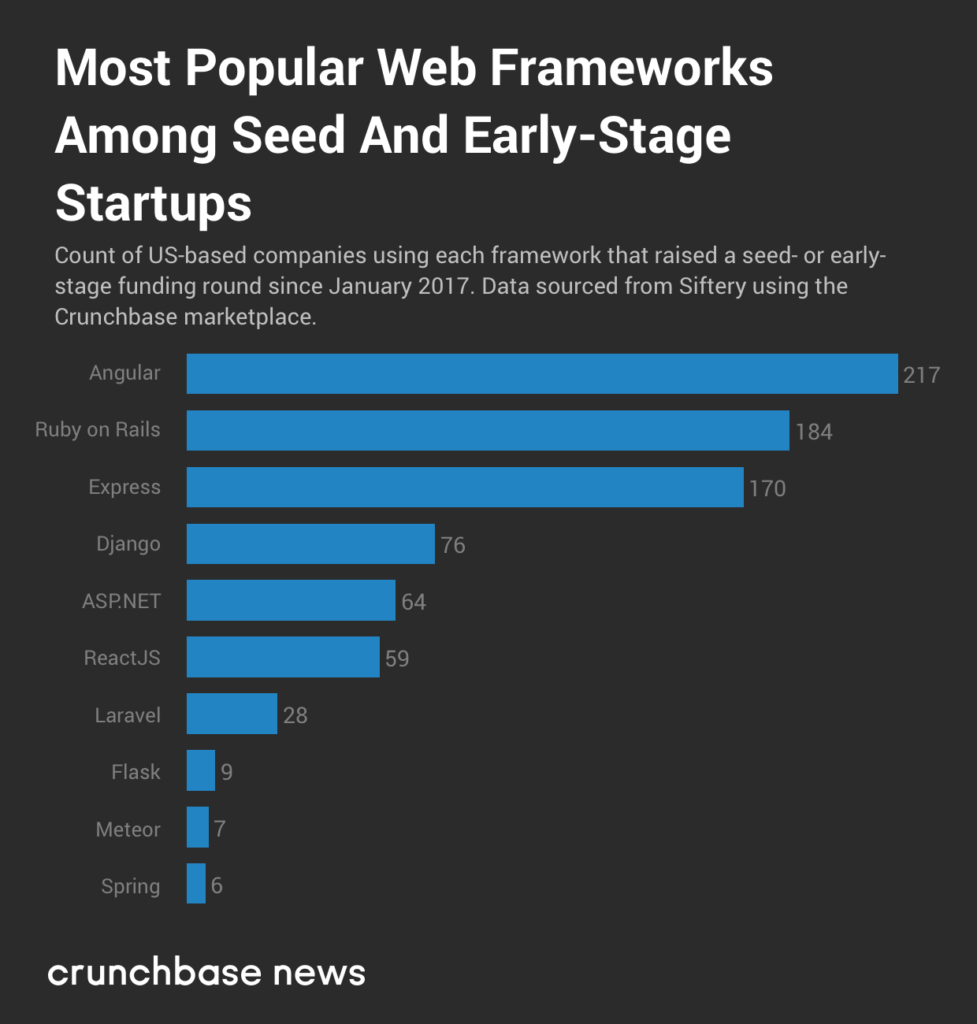If you want to get into web development for an early-stage startup, the logical question to ask is “which framework to learn?” The number of web frameworks out there today are only outnumbered by the number of opinions about which framework is the “best.” It’s also a question that should weigh on the minds of technical founders, engineering managers, recruiters, and, yes, the all-too-few venture capitalists who take the time to do technical due diligence.
Follow Crunchbase News on Twitter & Facebook
In the chart below, you’ll find the number of recently-funded seed and early-stage startups listed as using a particular web framework. (To learn more about how we structured these searches, check out the Methodology section at the end of this article.)

With 217 companies listed as using the client-side Angular framework and a few of its variants, it ranks at the top of the heap when it comes to popular web frameworks among young tech companies. Angular is the “A” in the increasingly popular MEAN tech stack, which uses MongoDB (which recently went public) for its database, Express as its server-side framework, and Node.js as the web server.
Ruby on Rails, the popular Ruby-based web framework originally developed by Basecamp (formerly known as 37Signals), is popular among early-stage startups and more mature companies alike. For example, Twitter was built using Ruby on Rails. Other tech companies like Github, Airbnb, Hulu, Kickstarter, and Square all use the Ruby on Rails framework in production environments.
Rounding out the most popular web frameworks are Express, Django and its variants (a Python framework used by Instagram, Dropbox, Youtube, Quora, Spotify, and others), ASP.NET, and ReactJS.
So which framework to learn? There’s no right answer to this question. Go with whatever you feel most comfortable with. You’ll find most communities to be welcoming to newcomers. But when it comes to job searches, don’t be surprised if most prospective employers are at least a little MEAN.
Methodology And Search Queries
To make the charts above, we used a combination of data from Siftery and Crunchbase.
We ranked ten popular web frameworks by the number of recently-funded seed and early-stage startups that show up in Crunchbase’s dataset. To do this, we started with the population of U.S.-based companies that raised a convertible note, angel, seed, Series A, or Series B round between January 2017 and the time of writing. We then searched for the companies that Siftery lists as using a particular web framework.
The numbers these queries produced are not comprehensive. There are probably far more than 217 recently-funded startups that use Angular. But it does directionally point to the relative popularity of these various frameworks with startups.
iStockPhoto / Lightcome

Stay up to date with recent funding rounds, acquisitions, and more with the Crunchbase Daily.











67.1K Followers